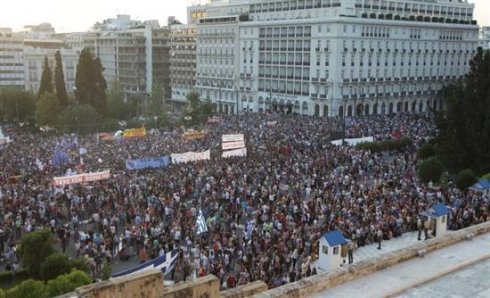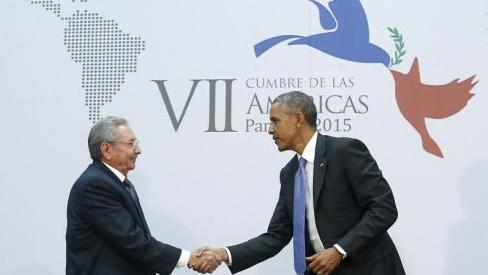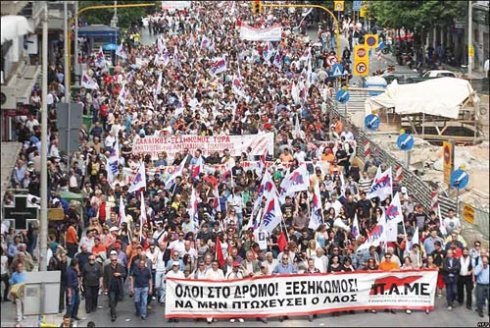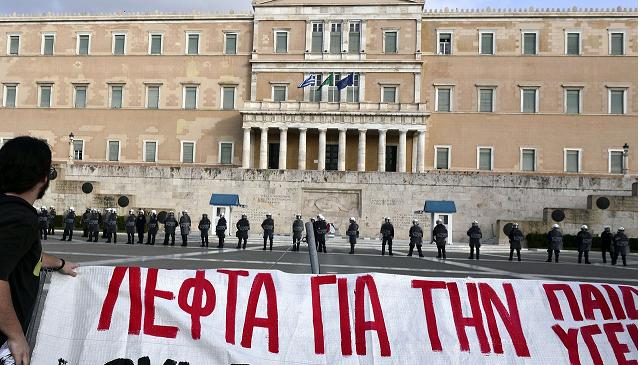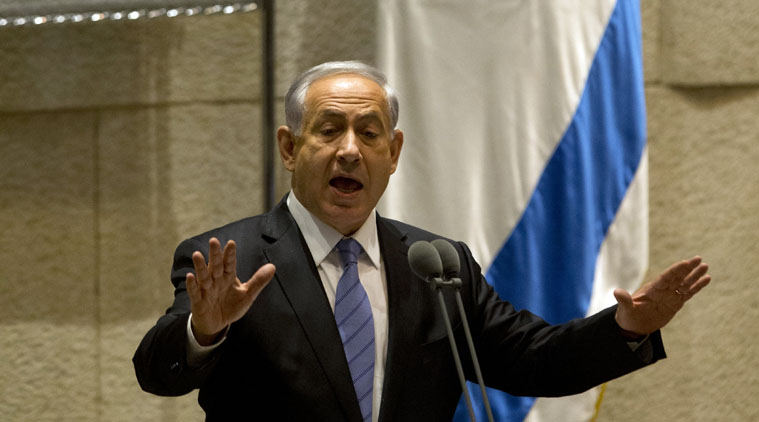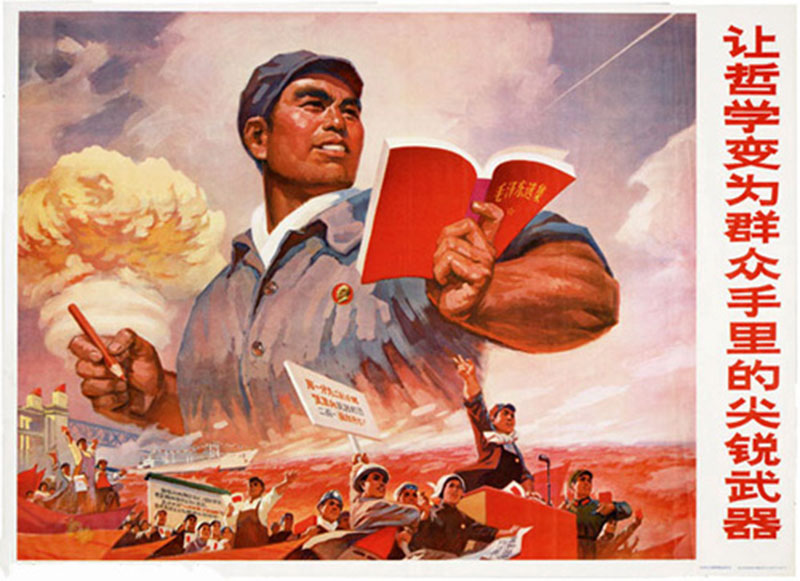Declaration of the Fracción Trotskista – Cuarta Internacional
They announce a "ceasefire" after eight days of Israeli bombing
30/11/2012
They announce a "ceasefire" after eight days of Israeli bombing
New attack of the terrorist state of Israel on the Palestinian people
1. From November 14, for eight days, the State of Israel kept up a brutal campaign of daily attacks, through aerial and naval bombing, against the Gaza Strip, assassinating Ahmed Jaabari, one of the main leaders of Hamas. The operation called "Pillar of Defense" left a toll of 150 Palestinians dead, among them several children, and more than 1,000 wounded, in addition to having caused extensive destruction of civilian facilities, government buildings, infrastructure, dwellings, and even press offices. For their part, the forces of the Palestinian resistance responded to this attack by launching more than 1,000 rockets of varying range, of which around 800 struck southern Israel, reaching even Tel Aviv and Jerusalem. These devices, although they have caused few casualties and little damage, have an enormous psychological effect on the Israeli population, and boost the Palestinians’ morale. The right-wing Israeli government of Netanyahu-Lieberman-Barak had threatened to launch a ground invasion of the Gaza Strip, for which it called up tens of thousands of reservists and sent troops and tanks to the border with Gaza, as a way of exerting pressure on the negotiations underway, promoted by the United States and Egypt. Finally, on November 21, the US Secretary of State, Hillary Clinton, together with the Egyptian Minister of Foreign Relations, announced the ceasefire, accepted by the Zionist State and Hamas. Although it is still too soon to evaluate what the balance of forces will be, and the details of the agreement are not yet known, the agreement would be limited to a promise by Israel to allow partially easing the blockade of the Gaza Strip, in exchange for which Hamas will guarantee that all Palestinian attacks on Israeli territory will be suspended. Needless to say, this "truce," of which Egypt is the guarantor, is still precarious, gives no guarantee that Israel will not resume its military attacks, and does not in the least alter the conditions of oppression of the Palestinian people. The Egyptian government, in the hands of the Muslim Brotherhood, was a key player, by exerting its influence on Hamas in the service of maintaining regional stability and the peace treaty with the state of Israel, showing that it is not prepared to risk its alliance with imperialism.
2. In no way can the sophisticated Israeli war machinery that is imposing colonialist oppression on the Palestinians, expelled from their lands and dwellings, subjected to a regime of hunger and terror, denied their most basic national and democratic rights, be equated with the military actions of Hamas and other groups that, over and above their programs, are part of the just resistance of the Palestinian people. Since the immense destruction that Operation “Cast Lead” of 2009 left, Hamas and other resistance groups have recovered their strength and are displaying their ability to deal blows with those volleys of rockets that, although they have meager destructive efficiency, possess great symbolic and moral importance. The international press and Israel and its allies and agents use the launching of rockets and other actions of the resistance to justify their massacres in the name of “the War on Terrorism.” Certain social democrats and “progressives” put an equals sign between the brutal Israeli military attack and Palestinian “terrorism,” with which they hypocritically improve the image of the real aggressor and historical culprit of the situation: the State of Israel, with its terrorist methods, that range from torture of the more than 4,500 Palestinian prisoners and “targeted” assassination of leaders of Hamas and other groups of the resistance, to reprisals to punish the Palestinian population as a whole, a population subjected to living conditions comparable to an “open-air prison.”
3. Imperialism in its entirety came out once again, to support the State of Israel, which it protects, arms and finances. The German Angela Merkel, like the French “socialist” Hollande, supported Netanyahu’s policy. The British Conservative Cameron allowed himself just to hint to Netanyahu not to go too far with civilian casualties, so as to avoid losing prestige. Re-elected President Obama immediately took sides because of the “unwavering commitment to Israel,” on Monday, November 19, suggesting “restraint” to Netanyahu, since “It would be preferable to avoid a ground offensive.” In line with imperialist support for Israel, the UN let the actions continue. As is customary, the Operation “Pillar of Defense” will not receive any condemnation from the "international community."
4. In this way, Netanyahu’s government has imperialist support to try to impose their aims: to deal a new blow against the Palestinian people, by hindering them from “getting back on their feet” beside the changes that the “Arab Spring” has provoked and weakening Hamas politically and militarily: galvanizing in their favor public opinion in Israel, where there will be elections in January 2013; and also exerting pressure on Obama to favor Israeli interests during his second term, when the decline of US hegemony is being felt in the entire Middle East, after the withdrawal from Iraq and the effects of the “Arab Spring,” that overthrew direct allies of the United States and Israel, like the Mubarak dictatorship, that, for three decades, guaranteed the security of the Zionist state and the maintenance of regional stability. The Tel Aviv leaders distrust the ability of the United States to slow that deterioration down and confront what it identifies as direct threats to their security and to their privileged position as an enclave and an imperialist gendarme in the Middle East. For example, the strengthening of Iran as a regional power that could develop a nuclear capacity (until now it has been Israel that has had the monopoly over atomic weapons in the Middle East, with imperialist support), and also, that the war in Syria should end, not only by spreading to Lebanon, but that Assad will end up by being replaced by a regime with Islamist influence, in a country of great geopolitical importance. This forces it to look at its northern border with increasing concern, since Israel is still "technically" at war with Syria, given that Israel has kept the occupation of the Golan Heights since 1967; while a new and growing wave of protests in Jordan and Hamas’ recuperation in Gaza are stirring up its southern and eastern border.
5. The Zionist regime, furthermore, shows big elements of internal crisis: there is a latent dissatisfaction with the neoliberal adjustments that the current government is promoting (last year, there were big mobilizations of "indignant" Israelis); the strength of the Zionist social bloc is challenged as possibly never before. Tel Aviv confronts growing diplomatic isolation in the region, with important governments, like that of Turkey and Egypt itself, distancing themselves and seeking rather to improve their relationships with other Arab countries. As on other occasions, Israel is playing the card of armed provocations to impose its interests and bend to the right, as far as possible, a situation that threatens to evolve in an unfavorable manner. Netanyahu has allied himself with the ultra-right Foreign Affairs Minister Avigdor Lieberman for the next elections, around a program that includes as one of its central themes, extreme severity towards the Palestinians and their demands, continuing the introduction of Zionist settlements on the West Bank, and all the measures that will further absorb the Palestinian territories.
6. In the regional crisis created by Israel’s action, the Egyptian government, the Arab League, and other governments of the region criticized the Israeli attacks and have made gestures like the visit of ministers and senior officials to Gaza and the withdrawal of the Egyptian ambassador in Tel Aviv. The Turkish government of Erdogan (from the Justice and Development Party, of a moderate Islamist tendency), that supports the armed opposition against Assad in Syria and seeks to expand its influence in the Arab world, toughened its language against Israel, accusing it of being a "terrorist State." But Egyptian President Morsi is the one who has taken a senior role, positioning himself as a mediator between Tel Aviv and Gaza. Egypt is trying to put some limit on the Israeli attack, but by respecting the essence of the pacts and agreements with Israel and the United States, made by his predecessors. But Morsi is in a different situation: he must impose the diversion and establish a new regime, after the revolutionary overthrow of Mubarak, and, for that, he has to bear in mind his social base, hostile to Israel, and sympathetic to the Palestinians. Morsi is trying to maintain a delicate balance, in order not to be as pro-Israel, but, at the same time, to respect the security commitments to Israel and the US (from which he receives considerable military aid and support for managing funds in the IMF). Thus, until now, and despite the gestures (like sending his Foreign Affairs Minister to Gaza, or welcoming Khaled Mashaal, the Hamas leader, and Abdullah Shallah, the leader of Islamic Jihad, in Cairo), he hardly lifted the closure of some border crossing with Gaza: his policy is to keep the Palestinians semi-suffocated, but to be able to present himself as a mediator and use them as a negotiating card with Israel and the United States. This became clear in the key role he played in negotiating the truce, together with the US government.
7. The sudden appearance of the “Arab Spring” at the end of 2010, with revolutionary uprisings of the masses, toppling key agents of imperialism like Mubarak, signified a qualitative change for the class struggle, the balance of power and “geopolitics” in this strategic region, challenging the regional status quo set up in recent decades by imperialism. All the actors in the region are forced to take into account that decisive fact, that has also favorably modified the coordinates of the Palestinian resistance. Imperialism responded to the processes of rebellion in the Arab countries, by combining support for “transitions,” like the one that Morsi has presided over, and incorporating the moderate Islamist parties, like the Muslim Brotherhood, as an indispensable interlocutor, to be able to divert the process, with interventions like that of NATO in Libya, at the same time trying to present itself as a “friend of the Arab peoples.” In order to recompose imperialist control, the Obama administration and several European governments (like that of France) are trying to improve their image, in front of the Arab processes, whether by means of direct “humanitarian” intervention, as it was in Libya, or through support to the transition, as in Egypt, without, however, abandoning their traditional allies: the State of Israel and the Saudi monarchy. Although the situation of the class struggle in the region is marked by the detours under the new governments, the old equilibrium is far from having been recomposed. In this context, instability is expressed, among other situations, in the civil war in Syria, where imperialism has not yet managed to orchestrate a solution for the replacement of Assad. Mobilizations like the recent ones in Jordan, or the persistence of strikes and protests in Egypt, Tunisia, etc., indicate that the profound contradictions that are fostering the Arab rebellion remain open. The political crisis reopened in Libya shows that it is not so easy for imperialism to establish its plans for “democratic” counterrevolution. In this context, the attack on Gaza amounts to playing with fire, since at the same time that it exposes still further the true face of Israel and of imperialism that sustains Israel, it tries to "set ground rules" to preserve the status quo in which it plays a privileged role. The Israeli strategy of provocations seeks to make up for the weakening of its political and diplomatic positions with a hardening of the regime on the Palestinians and by threatening to use its military force. In this sense, although it responds to the definite fact of greater activity of Hamas and Islamic Jihad in Gaza, the Israeli military operation has preventive traits and seeks to avoid further deterioration in view of the new regional scenario in which Islamist forces have influence in several decisive countries and with which [Islamist forces] imperialism is negotiating, as is the case with Egypt. But in the current conditions, it can end up further souring relations with important neighbors like Turkey and Egypt, and arousing greater international condemnation. It is for that reason, and not because of "concern for civilians," that Israel was pressured by the "international community" not to move forward in a ground occupation of Gaza, since that could have had counterproductive political results for the imperialist status quo.
8. In this context, the internal situation in the Palestinian camp, divided between the West Bank, controlled by Al Fatah, and Gaza, where Hamas is the leadership, is also complex. The Palestinian Authority, presided over by Mahmoud Abbas, the leader of Al Fatah, confronts a growing loss of prestige, that was expressed in a high rate of of absenteeism in the recent July municipal elections, reflecting popular discontent with its course, completely subordinated to Israel, its repressive policy and the corruption of its regime. Abbas is betting on improving his image by getting recognition as a UN "observer," a symbolic status that, even so, Israel and the United States pledge to veto. Faced with the bombings of Gaza, he delayed for days before calling for "peaceful demonstrations." Abbas’ decline contrasts with the relative strengthening of Hamas, that has managed to overcome the international isolation and blockade to which it has been subjected since it assumed power in Gaza in 2006, and it has managed to expand its relationships in the region. On the one hand, this improved situation of Hamas is based on the change in the political climate in the neighboring states, a result of the impact of the "Arab Spring," beside which took place the rise of the Islamist parties, with which it is closely linked, as is the case with Morsi’s Muslim Brotherhood in Egypt, and, on the other hand, on a profound political turn, that is reflected in the alteration of its alliances. The old links with Iran have been weakened, and with Syria, they are broken. In fact, the Hamas commando group was expelled from Damascus, for not supporting Assad, and it had to disband in other Arab capitals. On the other hand, its links with Qatar, Egypt and other Islamist regimes have been strengthened (authorities from Qatar made the first trip to Gaza). These changes are causing a crisis within Hamas, with the current leader Khaled Mashaal announcing his retirement, and the struggle for succeeding him between two rival wings. Up to now, Hamas had been administering the Gaza Strip in a very moderate fashion, even controlling the more radical groups, to prevent bigger incursions against Israel. However, after the assassination of Jaabari (who was negotiating a truce when the Israelis executed him with a missile), that internal struggle contributed to the boldness in the launching of rockets over Israel, since no one wants to appear weaker in responding to Zionist aggression.
9. The place of the workers and the youth is, without a doubt, next to the Palestinians and their just struggle for national self-determination, the Palestinians, whose most basic rights are now being brutally denied under the oppression of the Israeli state. There is not, as the majority of the international press media depict it, an Israel that "desires to live in peace," but must respond to aggression from "terrorism." There are no "two demons": an Israel that defends itself, with brutal methods, from some Islamic "terrorists." What exists is the brutal oppression of the Zionist state over the tormented Palestinian people, that, however, refuse to back down, in their heroic resistance and their just, historical demands. In the imperialist countries, organizing solidarity actions – strikes, mobilizations, etc. – against the policy of their own governments and for the victory of the Palestinian resistance, is essential; by the same token, in the United States, Israel’s main arms supplier, the workers must organize effective actions to halt the shipment of arms and military supplies that massacre and murder the Palestinian people.
10. For revolutionary socialists, the just support for the Palestinian people’s struggle, the defense of their organizations against the Israeli attack, and being in favor of the military victory of the resistance and for the defeat of the Zionist armed forces, does not mean giving political support to leaderships with which we have profound differences and whose strategies have been shown to be powerless to achieve a progressive solution for the Palestinian cause. Al Fatah, the nationalist organization that dominated the PLO with Arafat, with its strategy of conciliation with imperialism, ended up in a complete capitulation to the State of Israel, summarized in the current collaborationist government of Mahmoud Abbas. Neither can Hamas, with its strategy of establishing a theocratic state within the frameworks of the bourgeois order, its methods completely distant from the mobilization and self-organization of the masses, its trust in different bourgeois Arab regimes, provide a leadership to take the Palestinian national cause to victory.
11. The legitimate right to Palestinian self-determination cannot be guaranteed under the wing of the Zionist state, armed to the teeth. There is no solution with the "two-state" policy, in which the place reserved for the Palestinians is super-exploited labor, packed into "bantustans" that can only be a poor imitation of statehood. On the other hand, it must be remembered that last year’s mass movement of the "indignant" Israelis, that demanded "social justice," found itself on a dead-end street, when it refused to demand "social justice – for the Palestinians, also," as some groups of the left proposed. Israel’s growing domestic social contradictions can create better conditions, so that among the less-privileged groups of the working class (that now includes half a million immigrants from around the world), they will begin to break the bonds that subordinate the working class to Zionism and its program of oppression of the Palestinians. Those Jewish workers and young people that desire to live in peace and not to bear the burden of permanent militarization, as gendarmes in the service of imperialism, must break with the bourgeois Zionist bloc and reach out to the Palestinian people and to the Arabs.
12. The only fundamental solution so that the Palestinian and Jewish peoples can coexist peacefully is by completely dismantling the State of Israel, a racist and pro-imperialist enclave, and defeating the "apartheid" regime that it keeps over the Palestinians, which is inseparable from the struggle to defeat imperialist domination of the region. We revolutionary socialists consider that great historical task can only be resolved with the strategy and the methods of proletarian revolution, by imposing a single state: a workers’ and socialist Palestine on all the historical territory of Palestine, on the road to establishing a Federation of Socialist Republics of the Middle East.
13. No confidence in the role of the Arab governments that emerged to divert the processes of the uprising of the masses, and that are bound by a thousand commitments to imperialism and the pacts with Israel. Morsi’s policy of "mediation" aims at restraining the Palestinians and guaranteeing Israel’s security, and it goes against the possibility that the Palestinians will achieve victory in their struggle. In the region, the Palestinian people’s big ally is the working class, that, in Egypt, with its participation in the overthrow of the dictatorship and the innumerable struggles that it has been waging since then, is beginning to show its enormous revolutionary potential. The working class must take the Palestinian cause and the struggle against imperialism and its agent Israel as its own, by standing at the head of the alliance of the oppressed and exploited Arab masses. The Israeli bombing of Gaza, with its aftermath of material destruction and civilian victims, had begun to arouse solidarity with the Palestinian people in several European and Latin American capitals, as well as in the Arab world. This task continues to be posed, over and above the current truce. International solidarity with the Palestinian people must be inscribed by the advanced workers and militant young people on their banners in the imperialist countries, as well as in the semi-colonial world, and they have to take that solidarity as their own task, starting from the condemnation of the oppression and constant repression by the Zionist state, from the rejection of the imperialist plans (like the reactionary utopia of "two states") to impose on the Palestinians the abandonment of their historic national cause, and for support for their heroic resistance, by struggling for their victory.
November 21, 2012
